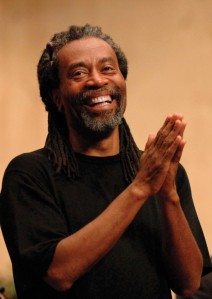Maybe you’re like me and spend part of your time beating yourself up over things you should be doing.
Like not returning bottles for their deposits.
Rather than redeem them at the store down the street, I chuck them into the recycling bin. Every time I do this I scold myself. Why don’t I return them for the deposit? I don’t know.
Well, actually, I do know. I am a bad person. I am slothful, and indolent. And lazy. And lack willpower and am morally deficient. To get the money back, I would actually have to put them in a box, put them in a car and take them to the redemption center. Imagine the energy it takes to do that. I am overwhelmed.
Sometimes, when I’m feeling like a useless individual and total spendthrift who wastes money and time and everything else, my mind comes to rest on my failure to take in bottles to get all those nickels back.
I could have retired by now. Millions of dollars wasted by not returning bottles. While they are being recycled, I am not being financially responsible. If there’s one thing that shows my moral failings, it’s my financial irresponsility. I’m sure none of you ever feel like that.
But now, I am content in my sloth and indolence. Sometimes there is nothing like dragging your feet when you’re supposed to be responsible, efficient and frugal. Sometimes it takes while for the purpose of an action to reveal itself.
About a month ago, I dragged out the recycling to the curb. There was a big container of bottles to be recycled (and I don’t want to discuss why there were so many and what had been in them…). I stood there looking at them thinking “You’re a lazy idiot. You should take them in and get the money for them.”
But it was late. And I was lazy. I chose guilt over action.
Something woke me early in the morning – it was still dark, around 5:45. I heard a noise outside. There were bottles and cans clinking and rattling out by the street. An alcoholic opossum? Or dog? A coyote? A squirrel? All these things were possible.
I got up from bed, quietly opened the door onto the porch and looked out onto the street. A car was pulled up by my driveway, its headlights illuminating my recycling bin. Someone was sifting through my recycling. They were stealing my bottles! In a weird, irrational response, I at first felt like I was being violated. Someone was taking my stuff! That stuff was worth something! I should yell at him to stop!
Then I saw the irony in that. By dragging it out to the curb, I had kind of declared what it was worth to me.
I watched the guy get in the car and drive down to my neighbor’s driveway, where he did the same thing. Bottles clinking, him pawing through the recycling bin, earning a nickel with each bottle he found. I got back in bed and lay there staring at the ceiling thinking about it. Then I fell asleep for another hour and forgot about it.
Until the next Wednesday morning, when I was again awakened by the sound of clinking bottles.
And last week, too. Always the same time, around 5:45, give or take five minutes.
So now I am thinking about the diligence and need of someone driving down my street collecting the bottles for deposit at 5:45 in the morning. I am thinking what a small thing it is, and what it means.
I hope he makes a million dollars. Or buys some food. Or get whatever it is he needs. It is a small offering, but one I now happily make every Tuesday night when I drag out the recycling bins. My lacksidaisical approach to frugality is someone else’s boon. I can live with that.







